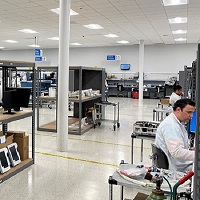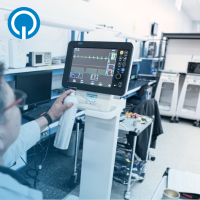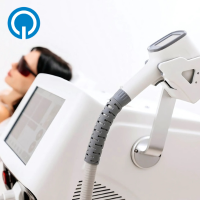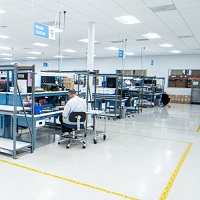- Contact
- (800) 231-6777
QView - Blog
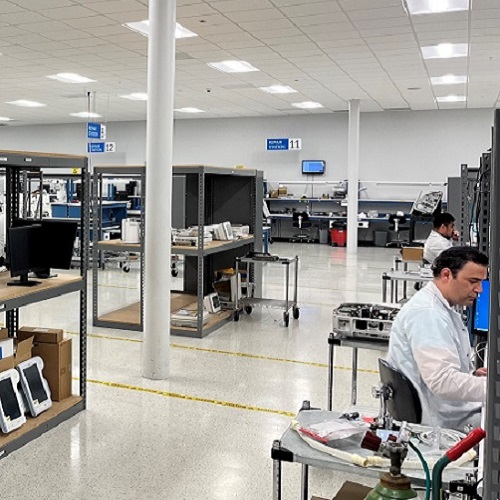
Scaling Service Operations Without Compromising Quality or Profitability
For medical device original equipment manufacturers (OEMs), exceptional service delivery is not an afterthought, it is mission critical. Scaling service operations presents challenges: how do you grow efficiently while maintaining quality, controlling costs, and staying compliant?
Read Full Article
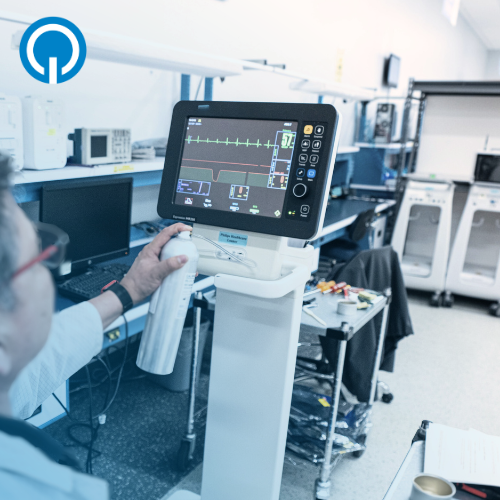
Comparing Field Service Options for Medical Devices
For medical device OEMs and healthcare providers, choosing the right field service approach is crucial for maintaining equipment uptime, ensuring patient safety, and controlling costs.
Read Full Article
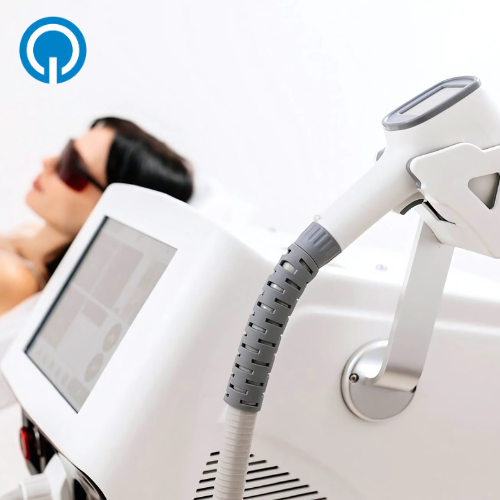
Enhancing the Efficiency of Aesthetic Device Companies with Quest International’s Services
The global market for aesthetic devices, including laser-based equipment, is booming. As advancements in technology and rising consumer demand drive the industry forward, opportunities are vast.
Read Full Article

The Role of Warehousing and Logistics in Optimizing Medical Device Supply Chains
Efficient warehousing and logistics solutions are essential to streamlining operations, reducing lead times, and improving overall operational efficiency.
Read Full Article

Managing Returns and Reverse Logistics for Medical Devices: A Streamlined Approach
The medical device industry faces unique challenges in managing product returns and reverse logistics.
Read Full Article

How to Budget for a Field Corrective Action (FCA) for Medical Devices
OEMs must have a clear budgeting strategy and a trusted partner to manage the financial impact.
Read Full Article

What to Look for in a Field Corrective Action (FCA) Partner
Choosing the right partner to handle FCAs can make or break a company’s reputation.
Read Full Article

Customizing IT Managed Services for Healthcare-Specific Needs with Quest International
The healthcare and medical device industries face unique IT challenges where compliance, security, and system reliability are paramount.
Read Full Article

Streamlining Medical Device Demos, Evaluations, and Clinical Trial Setups with Quest International
The ability to effectively demonstrate product value, manage clinical trials, and provide seamless evaluations is crucial to commercial success.
Read Full Article

The Crucial Role of a Strong QMS in the Success of Medical Device Startups
A robust QMS can help medical device companies deliver quality, mitigate risk and improve several aspects of their operations.
Read Full Article

Leveraging Outsourced Infrastructure: A Strategic Advantage for Startup and Emerging Medical Device Companies
One of the most critical aspects of building a successful medical device company is establishing a robust infrastructure that supports quality, reliability, and scalability.
Read Full Article
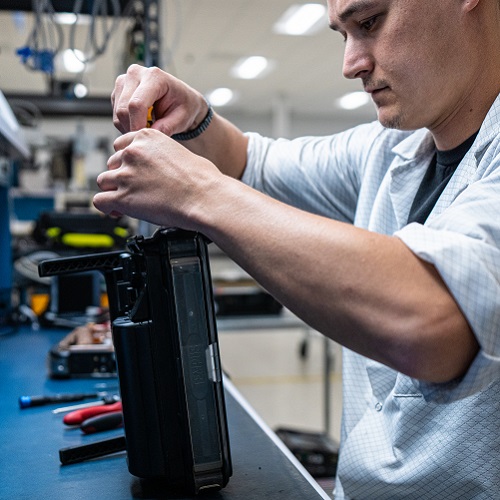
Maximizing Equipment Uptime with Efficient Depot Repair Solutions
Partnering for depot repair services can enable OEMs to maximize their device's uptime and increase customer satisfaction.
Read Full Article
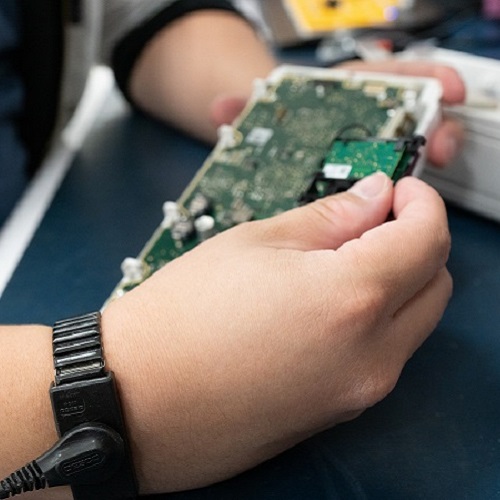
How Quest Can Help Emerging Device Companies Grow and Scale
Start-up medical device Original Equipment Manufacaturers face a specific set of problems that outsourcing can help solve, leading to faster commercialization and increased profitability.
Read Full Article

Choosing the Right Outsourcing Partner for Medical Device Depot Repairs: A Comprehensive Guide
Outsourcing depot repair for medical devices can be a strategic move for Original Equipment Manufacturers (OEMs), offering benefits such as cost savings, access to specialized expertise, and improved operational efficiency.
Read Full Article
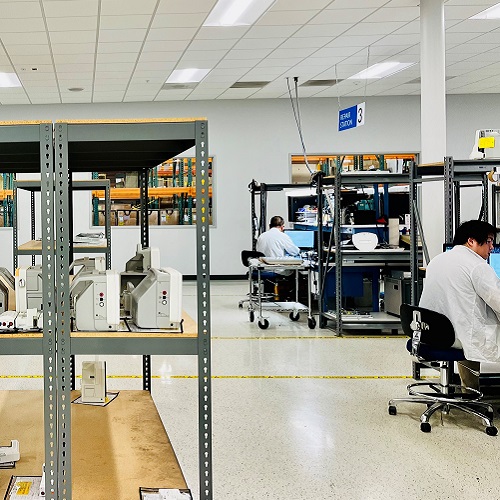
The Strategic Advantage of Outsourcing Depot Repair for Medical Device OEMs
Healthcare OEMs can gain a significant strategic advantage by outsourcing thier depot repair operations to a qualified partner.
Read Full Article
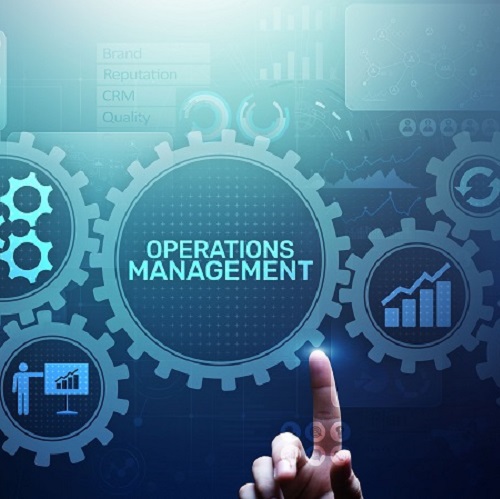
How Agile Services for Operations Help OEMs Navigate Change
Quest International's flexible and scalable services allow OEMs to act with agility to change and disruptions.
Read Full Article

Ensuring Operational Resilience and Business Continuity
Quest International works with medical device OEMs to ensure that they never experience any laspes in continuity or extended periods of downtime.
Read Full Article

Tailored Service Solutions: Quest International's Approach to Budget-Friendly Support for Medical Device Companies
Quest International works with all of its customers to create financial solutions that ensure their operations are cost effective.
Read Full Article

Strategic Partnerships: How Quest International Enhances Operational Efficiency
With the medical device market expected to grow 6.1% to $291 billion by 2030, there is a lot to gain for companies that can maximize their operations while focusing on innovation and growth.
Read Full Article
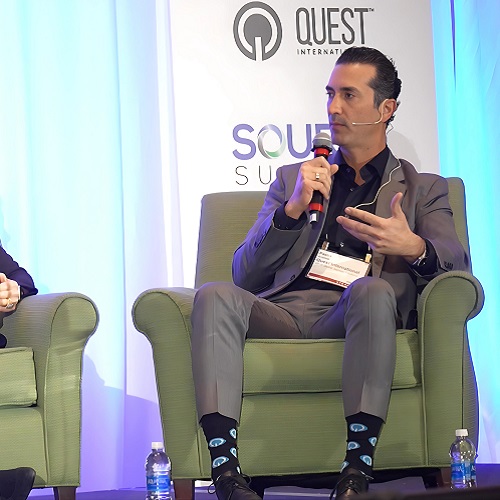
"Scaling Service Teams, Operations, and Reach" from Field Service Medical 2024
From Field Service Medical 2024, Pasha Arshadi discusses how medical OEMs can improve their operations by partnering with a third-party solutions provider like Quest International.
Read Full Article

The Crucial Role of Depot Repair in Extending the Lifespan of Medical Equipment
The future of the medical device industry will be driven by new technologies and advances in healthcare. The repair and maintenance of medical devices and equipment will need to keep pace with these evolutions, growing more technically complex and sophisticated.
Read Full Article

Customized Solutions: Tailoring Depot Repair Services to Your Business Needs
In the dynamic medical device industry, one size never fits all when it comes to aftermarket support solutions. Recognizing this, Quest International offers a commitment to customization when it comes to our depot repair services.
Read Full Article

Quest International Enhances World-Class Logistics Services by Doubling Warehouse Capacity
Quest International doubles warehousing capacity to boost logistics and supply chain offerings for medical OEM clients.
Read Full Article
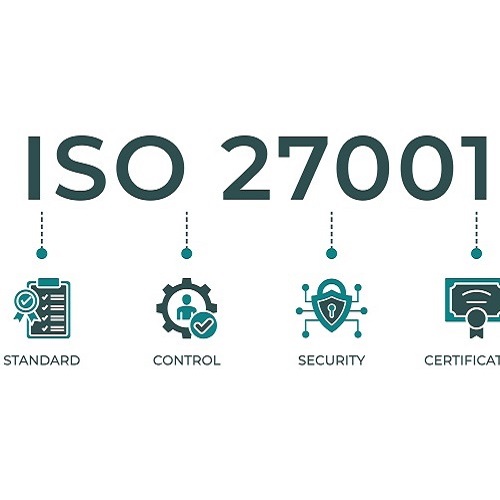
Quest International Elevates Data Security Standards: Upgrading ISO 27001 Certification to 2022
Quest International upgrades its ISO 27001 certification from 2013 to 2022 to bolster its cybersecurity resiliency and offer greater protection to its customers.
Read Full Article

Third-Party ISO 14001:2015 Compliance: How Your Organization Benefits
ISO 14001:2015 is an internationally agreed-upon standard of requirements for an environmental management system (EMS). ISO 14001:2015 certification demonstrates an organization’s adherence to internationally recognized codes of practice and effective environmental control measures.
Read Full Article
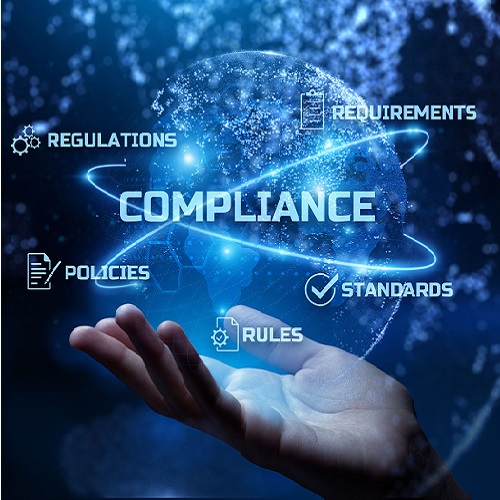
Meeting Compliance and Regulations in Field Service
As a leader in your organization, it is your responsibility to meet safety compliance and regulations by ensuring that your employees are safe while they are engaged in field service duties.
Read Full Article

The Role of Training and Development in Successful Field Service Management
Five Key Metrics for Improved Performance, Greater Customer Satisfaction, and Increased Revenues
Read Full Article

Recruitment and Retention Strategies for Success in 2024
Increase Productivity, Cut Costs, and Improve the Bottom Line
Read Full Article

Budget for the New Year with Predictable Costs for Customer Installation, Depot, and Field Services
With 2024 less than two months away, finalizing annual budgets is at the top of everyone’s To-Do list.
Read Full Article

Speed up Revenue Production Before Year End
With year-end just around the corner, you may be thinking about how to increase revenues by getting your product shipped, installed, and supported at your customers’ locations. You may also be considering how best to manage growth and/or seasonal demand with your current staff.
Read Full Article

Ensuring Quality Customer Care When Outsourcing Your Depot and Field Services Support
Now that you’ve decided to outsource your depot and field services support to gain cost savings, flexibility, and peace of mind, it’s important to ensure quality customer care from your outsourced partner.
Read Full Article

Outsourcing Your Depot and Field Services Work Cuts Costs and Improves Customer Service
Maintaining your depot and field service work can be taxing and expensive. There are ever-increasing overhead costs, including warehousing and equipment, plus staff costs, such as attracting and retaining valued employees, as well as dealing with potentially high turnover and ongoing training.
Read Full Article

Boost your Bottom Line and Reduce Costs by Utilizing an Integrated Service Partner
Inflation, the great technology reset, and labor shortages in field services continue to directly impact Original Equipment Manufacturers’ (OEM) overhead costs, particularly travel, labor, and equipment expenditures.
Read Full Article

Transitioning to an Integrated Service Partner
Tips to maintain quality customer service
Read Full Article

Celebrating National Health Center Week: Quest International's Appreciation for their Remarkable Work
Across the U.S., nearly 1,400 health centers provided care to more than 30 million people in 2021, regardless of their ability to pay, according to the Government Accountability Office. Health centers were established to increase the availability of primary and preventive health services for low-income people living in medically underserved areas.
Read Full Article

Keep Your Customer’s Happy with Quest’s 24/7 IT Support
In today's fast-paced, interconnected world, round-the-clock availability has become necessary for businesses across various industries. Companies must ensure uninterrupted and efficient service delivery as customer expectations continue to soar. Quest International helps companies deliver always-on services with our 24/7 support programs. In this blog post, we will explore how Quest’s commitment to providing continuous support can enable your company to provide a superior customer experience.
Read Full Article

Quest Completes 2023 UN Global Compact Communication on Progress
The United Nations Global Compact is an agreement, signed by more than 15,000 businesses and 4,000 organizations, to uphold a set of principles that guide businesses to be a force for good in the world. Businesses are encouraged to behave responsibly by aligning their strategies and operations with Ten Principles on human rights, labor, environment, and anti-corruption. To maintain membership in the Global Compact, businesses must complete Communications on Progress, showing that they are taking the steps necessary to help meet the UN’s Sustainable Development Goals.
Read Full Article

The Outsourced Solution for Field Service and Depot Repair of Medical Devices
In the Healthcare industry, it is crucial for equipment to function correctly and ensure the best quality of care for patients. For medical device original equipment manufacturers (OEMs), service and repair of equipment can be daunting, especially for large and complex devices. However, with the help of Quest International, OEMs can quickly address their equipment issues by outsourcing day-to-day field service and depot repair requirements to Quest.
Read Full Article

The Benefits of Partnering with an ANSI/ESD S20.20-2014 Registered Company
The ANSI/ESD S20.20-2014 registration demonstrates that a company has implemented measures to prevent electrostatic discharge (ESD) in manufacturing or service processes. ESD can harm electronic devices and lead to failures or malfunctions. The American National Standards Institute (ANSI) and the Electrostatic Discharge Association (ESDA) grant the registration.
Read Full Article
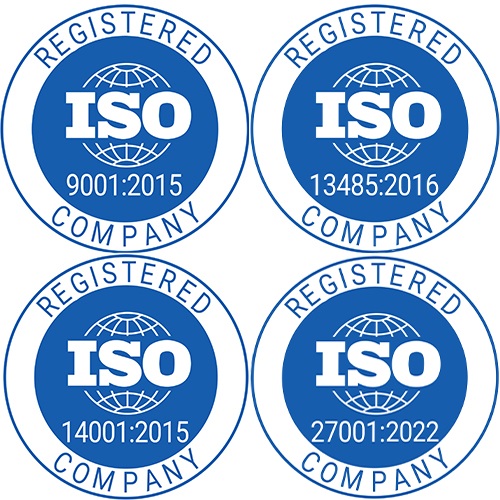
Enhance Your Business with an ISO-Registered Partner
ISO registration is an internationally recognized standard that signifies a company has established, implemented, and maintains quality management systems that meet international standards. Companies that choose to partner with ISO-registered companies can reap several benefits including the assurance of having a documented quality system, a high level of deliverable quality assurance, risk management, competitive advantage, and compliance with industry regulations.
Read Full Article

Why Field Service is Essential for Dental Robotics
As dental practices look for ways to improve patient outcomes and reduce costs, adopting dental robotics has become increasingly popular. These sophisticated machines can perform various tasks, from imaging and diagnosis to drilling and shaping teeth. However, like any complex equipment, dental robotics require regular maintenance and support to ensure optimal performance. This is where field service comes in.
Read Full Article

How Quest Utilizes ISO 27001:2022 Registration to Enhance Security
Information security has become a critical aspect of business operations in today's digital age. Organizations of all sizes and industries are at risk of data breaches and cyber-attacks. As a result, businesses need to ensure that their information security management systems (ISMS) are robust and effective. This is where ISO 27001:2022 registration comes in.
Read Full Article

Why Having an ISO 13485:2016 Registered Partner is Essential for Your Business
When it comes to servicing medical devices, quality, and safety are non-negotiable. That is where ISO 13485:2016 registration comes into play.
Read Full Article

ISO 14001:2015 Registered: What It Means for Environmental Management
Quest International is ISO 14001:2015 registered, a standard for environmental management systems that demonstrates the company's commitment to protecting the environment. By obtaining this registration, Quest sets an example for other organizations to follow in exhibiting environmental responsibility. Companies working with Quest can also benefit from this registration, as it provides a framework to lower their ecological footprint.
Read Full Article

ISO 9001 Quality certification
ISO 9001 is a globally recognized standard for Quality Management Systems that provide organizations with various benefits related to products and services offered to their customers. This certification is particularly relevant for OEMs outsourcing their depot repair and field services as it provides a structured system within an organization based on quality work, improved customer satisfaction, increased efficiency, and a competitive advantage in the market.
Read Full Article

Not a 3rd Wheel! How to Maintain Your Image, Voice, and Service Standard When Contracting Third-Party Partners
Every Original Equipment Manufacturer (OEM) has several concurrent, ongoing concerns when their products are out with customers. They must ensure their product reliably performs as promised and serves its role within the customer’s ecosystem. OEMs must also be prepared for what happens when their product inevitably needs repairs. When complications arise, companies must get their product serviced and up and running as soon as possible, with a minimal adverse effect on the customer, ensuring their brand reputation remains untarnished.
Read Full Article

Four Simple Ways Original Equipment Manufacturers can Maximize Service Efficiency
As Original Equipment Manufacturers (OEMs) look for ways to improve their operations and better serve their customers, they can turn to third-party service partners for help. From logistics, installation, maintenance, and warranty management, third-party service partners can provide a range of benefits to OEMs, helping them deliver and support their products more effectively.
Read Full Article

Quest’s Methodology for Medical Device Field Services
With more than 40 years of experience in the healthcare industry, Quest International has the quality systems, tools, knowledge, and footprint to provide end to end product support for medical device manufacturers worldwide.
Read Full Article

Outsourcing Aftermarket Services to Combat the Labor Shortage
Although job openings have surged to record highs, the United States labor market is still experiencing a significant gap between supply and demand. In fact, 42% of business leaders have reported that they cannot fill current job openings.
Read Full Article

Quest Earns ISO 27001 Certification, Proving Cybersecurity Bona Fides
IT environments today are constantly bombarded with cyber and ransomware attacks. All organizations are vulnerable to these attacks, and every organization has vulnerabilities in their IT protection plan. While nothing can guarantee 100% protection, Quest can make one claim that many others cannot: we are ISO 27001 certified.
Read Full Article

What are IT Managed Services
Technology provides great opportunities for business owners, and to compete in today’s business environment, technology must be interwoven into the company. Unfortunately, these opportunities have brought vulnerabilities and headaches to business owners across all industries.
Read Full Article

Why Depot Repair Services are Invaluable for OEMs
When Original Equipment Manufacturers (OEMs) are in need of repair services for their products, they may choose to outsource the work by partnering with a third-party depot repair provider like Quest.
Read Full Article

How OEM's Can Budget Aftermarket Service Processes in a Recession
Rising interest rates, supply chain issues, limited labor pools, inflation, and a potential recession have caused Original Equipment Manufacturers (OEMs) to struggle with their aftermarket service delivery needs.
Read Full Article

How Third-Party Service Providers and White Glove Partners Can Support OEM Staffing Challenges
Across the board, Original Equipment Manufacturers (OEMs) struggle to find reliable, well-trained staff to meet their service needs in order to differentiate their brand and meet necessary service obligations to their customers.
Read Full Article

The Importance of Healthcare Supply Chain Management
Healthcare supply chain management, or healthcare supply chain logistics, is defined as “the regulation of the flow of medical goods and services from manufacturer to patient.”
Read Full Article

How Quest Helps OEMs Achieve Their Revenue Goals
OEMs such as medical device manufacturers, often face logistical challenges when providing pre- and post- sales customer support for new products or technologies. For example, an end-user has taken delivery of a new device or system, but how do they install and set it up correctly?
Read Full Article

The Basics of IT Managed Services
Quest offers consultative expertise and business-driven solutions beyond managing, monitoring, and hosting. Our goal is to deliver an end-to-end cost-effective solution to formulate and manage your IT infrastructure to maximize uptime and maintain a high level of secured performance.
Read Full Article

How Quest Uses Onshoring to Counter the Shipping Crisis
One of the biggest challenges seen today are supply chain delays—more specifically, being unable to efficiently ship products back overseas that may require service or repair.
Read Full Article

Nearshoring, Onshoring and Offshoring: What’s the Difference?
Nearshoring, onshoring, and offshoring are all methods of outsourcing production. Nearshoring and onshoring, however, occur within a company’s national borders.
Read Full Article

The Negative Environmental Impacts of Offshoring
There are negative environmental impacts to offshoring—outsourcing product production to a different continent—including pollution and greenhouse gas emissions.
Read Full Article

How Nearshoring Can Positively Impact Your Business
Nearshoring is a cost-effective strategy for OEMs to bring operations closer to their corporate HQ or bring things back into the regional or local marketplace.
Read Full Article

OEM Product Life Cycle Support
Quest offers OEM product life cycle support from cradle to grave while maintaining white glove customer support so our clients can focus on their priorities.
Read Full Article

Take a Look Inside Quest's Train the Trainer Process
A Master Training or a Train-the-trainer program is a unique service to Quest offers to its Original Equipment Manufacturer (OEM) clients. Our team essentially becomes certified “master trainers” by training under the OEMs product training Subject Matter Experts (SME).
Read Full Article

How to Protect Healthcare Infrastructure from Cyber Risks
Cyber-attacks are an ever-increasing threat to Healthcare infrastructure, especially legacy devices. Original equipment manufacturers (OEMs) bear responsibility for protecting devices, both old and new, from cybersecurity threats to mitigate the risks to patient safety.
Read Full Article

Clinical Training in the Dental Industry: A Quest Customer Success Story
As the leading global post-sales service support partner delivering end-to-end solutions for healthcare and life sciences original equipment manufacturers (OEMs) worldwide, Quest partners with a myriad of OEMs to enhance their technical service capabilities.
Read Full Article

Quest’s Commitment to Sustainability Through the United Nations Global Compact
Quest actively implements the United Nations Global Compact Principles in an effort to continue increasing our global sustainability. Their principles and global goals are in alignment with what we, at Quest, aim to uphold as well.
Read Full Article

A Look Inside Quest’s Logistics Services
Quest assists OEMs in designing, planning, and implementing an outsourced supply chain management program that contributes to their profit goals and provides the maximum value for their assets.
Read Full Article

How Quest Provides White Glove Service to Customers
Our white-glove service elevates the experiences our Original Equipment Manufacturers (OEM) give to their customers. Read our client success story which provides insight into how our team transforms the OEM user experience to improve customer satisfaction and reduce operating costs.
Read Full Article

How Partnering with Quest Can Impact Your NPS Score
NPS stands for a Net Promoter Score, the standard metric used to measure customer experience programs. It takes into account various factors such as customer loyalty and overall satisfaction. Essentially, it's a widely used metric across the globe to gauge customer experience.
Read Full Article

What are Recall Management Solutions?
Product corrective actions, recalls and remediation’s impact hundreds of device manufacturers every year. According to MDDI Online, in 2019 alone, the FDA issued 48 product recalls to medical device manufacturers. The actions made following a product recall can make or break a company’s reputation within the healthcare industry.
Read Full Article

How Quest Makes Your Life Easier with Exceptional Customer Service
Quest is the leading technical service provider for device manufacturers worldwide. We have built a global network of resources and infrastructure to help facilitate service execution on behalf of Original Equipment Manufacturers (OEMs) to meet their service delivery needs.
Read Full Article

Traceability and Field Service Repairs
The idea behind Original Equipment Manufacturers (OEMs) utilizing outsourced service providers is to offload the time and resources it would take to service equipment themselves. It's a great strategy but requires the right partner that can ensure devices are correctly serviced to manufacturer’s specifications in a timely manner.
Read Full Article

The ABC's of Outsourcing your Depot Repair Services
How can companies use outsourced field repair and depot services? Companies without the resources to store, service and repair equipment can partner with us to use our global depot services to house and repair equipment they don’t have the space or resources to hold.
Read Full Article

What it looks like to Partner with Quest
What does initiating a partnership with Quest look like? The onboarding process between Quest and our clients helps both parties understand each other, along with how we as a company can ensure a smooth process. Ultimately while each client has different needs, the onboarding process is generally similar.
Read Full Article

Depot Services: Is it better to build or outsource?
As an Original Equipment Manufacturer (OEM), the cost and time associated with storing, servicing, and supporting all of your products can be challenging. You are essentially supporting legacy products while innovating and improving your new products. In some cases...
Read Full Article

Why is Designing for Serviceability important in launching a successful product?
As the leading post-sales service provider, Quest works with many medical device manufacturers to provide depot repair and field services. Frequently, there are aspects of the product design stage that isn’t considered as part of the overall product life cycle.
Read Full Article

Managing Priorities: Scheduled vs Reactive Service Events
Day to day business requires addressing crises and reacting to client needs, but a steady maintenance schedule can prevent or catch critical errors before they negatively impact machines, clients and cause late-night repair calls.
Read Full Article

Internet of Medical Things (IoMT): Remote Monitoring & Management as a Service
Human Machine Interfaces (HMIs) are important and common tools used in the healthcare system. Oftentimes, Human Machine Interfaces are the point of failure of connected systems. How can you support the systems that make your healthcare technology interface with the teams that use them?
Read Full Article

Converting Legacy On-Premise Applications into the “Cloud” for Original Equipment Manufacturers
With the advent of computer technology, recordkeeping has now gone paperless. Technological advances in computers and software development allow Original Equipment Manufacturers (OEMs) to create applications assisting the end user operators of their systems in capturing, storing, and retrieving data electronically.
Read Full Article

Why Your Company Should Not Be Investing in 'In-House' Brick and Mortar Repair Depots
Original Equipment Manufacturers (OEMs) relying on their own brick and mortar repair depots often spend significant amounts of company time and resources dedicated to servicing equipment that is a critical part of their business, yet the service aspect is often approached as an afterthought as it is not an OEM’s core competency.
Read Full Article

De-Risking Your Healthcare Service Supply Chain
As the Healthcare industry continues to exponentially grow, so do the challenges of supplying the necessary resources and infrastructure required to support these medical devices. Device manufacturers are in need of specific quality and regulatory processes required to effectively service their products in the field or in designated service centers.
Read Full Article

Quest 3rd Party On-site Hardware & Data Center Management Services
We understand that one size does not fit all. Quest takes a fit-for-purpose approach with our clients. While a preventive management approach to implement a managed service is preferred, there may be situations where companies need IT support only when required.
Read Full Article

Key Reasons to Partner with a Third Party Logistics (3PL) Provider
As companies experience growth, they often run into challenges in meeting the fluctuating demand of their supply chains. For businesses looking to augment their current logistics operations or outsource specific processes, they seek to partner with a trusted 3PL provider.
Read Full Article
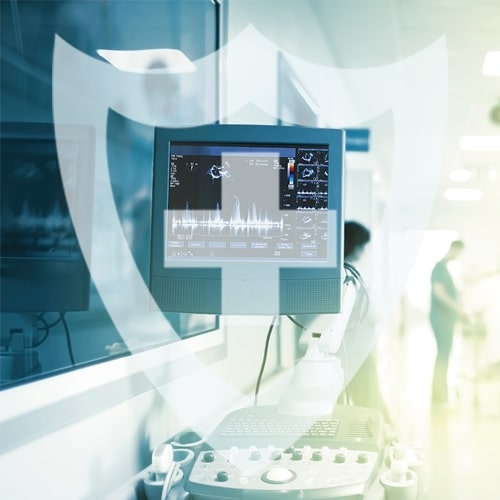
Cybersecurity During the COVID-19 Pandemic
The COVID-19 pandemic has overwhelmed security measures across every major business. From non-essential employees working from home to hospitals overloaded with patients—the susceptibility of a security breach is more prevalent than ever.
Read Full Article
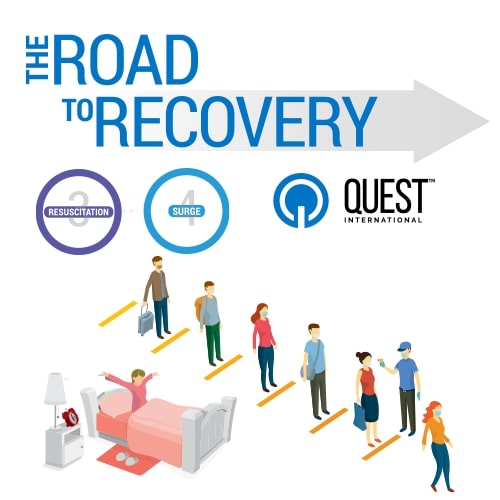
COVID-19: Phase 3 & 4 Resuscitation and Surge: Start Me Up!
What many thought would be months away has finally become a reality. We have entered the Resuscitation (Phase 3) of our journey through this pandemic.
Read Full Article
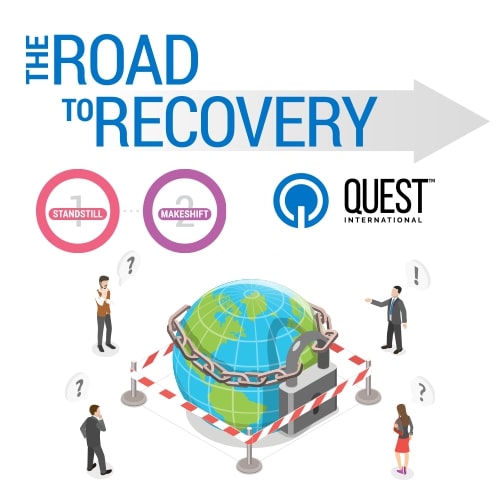
COVID-19: Phase 1 & 2 Standstill and Makeshift: Essential vs. Non Essential
On March 11th, 2020, the World Health Organization officially characterized COVID-19 a pandemic, marking the beginning of the Standstill (Phase 1). During this stage, the coronavirus outbreak had become a severe threat to global economies, and as a result, businesses were shuttered and stay-at-home orders took effect around the world.
Read Full Article
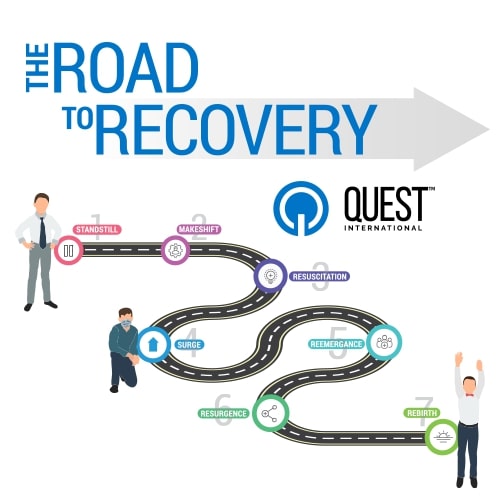
COVID-19: 7 Phases on the Road to Recovery
Working as a partner with many leading medical device manufacturers, we are continuously gaining insight into the effects this pandemic has on these organizations. As we work to forge a path to normalcy, we've identified seven phases we will encounter on the road to recovery.
Read Full Article
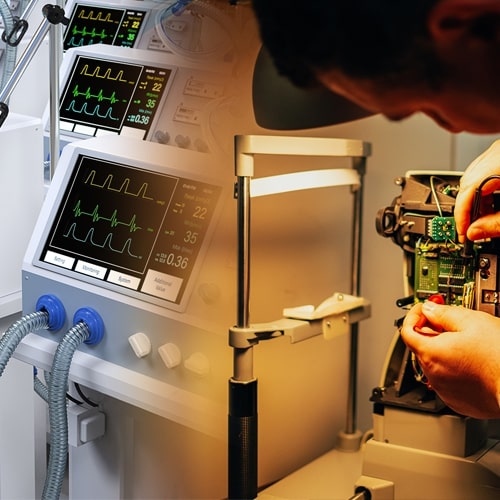
How Strong is the Backend Infrastructure of America’s Healthcare Industry?
With the healthcare industry in America struggling to overcome the COVID-19 pandemic, there may be a gaping hole that manufacturers aren’t paying attention to.
Read Full Article
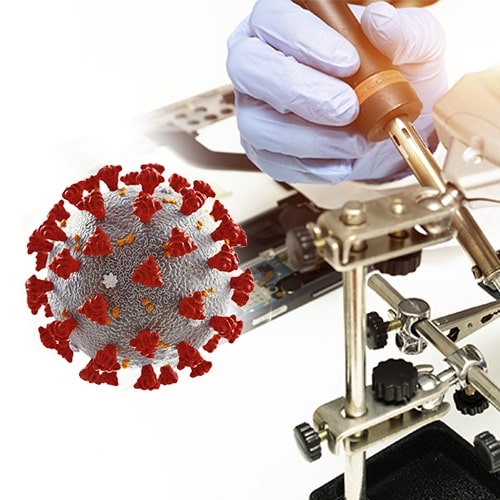
3 Ways to Mitigate Increased Supply Chain Demands during COVID-19 with Quest International
Medical device manufacturers are on the world’s stage as they respond to and assist those reeling from COVID-19 outbreaks.
Read Full Article
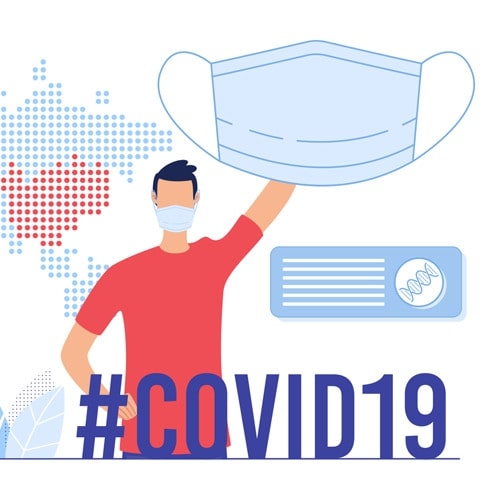
Useful Hacks to Decrease Medical Device Supply Strain during the COVID-19 Crisis
COVID-19 has (and will) have far-reaching effects on the medical device industry and their subsequent supply chains.
Read Full Article

Golden Tips from Field Service Medical 2020 & COVID-19 Impacts to Service
Recently, the 2020 Field Service Medical Conference took place in Rancho Bernardo, CA, where top medical device service leaders gathered once again and shared learnings and best practices on addressing the challenges they've faced in the industry.
Read Full Article

Windows 7 is Over: Are You Ready for an Upgrade?
Since January 14th, 2020, Microsoft no longer provides updates for Windows 7. In a statement from Microsoft, they explained how Windows 7 would receive up to 10 years of product support since its inception in 2009.
Read Full Article

Quest Cybersecurity & Ransomware Prevention Services
In today’s increasingly risky IT environment, cyber and ransomware attacks are becoming more frequent. All organizations are vulnerable to these attacks, and every organization has vulnerabilities in their IT protection plan.
Read Full Article

65% of Small Businesses Fail to Act Following a Cybersecurity Attack
A recent survey shows that 65% of small businesses fail to act following a cybersecurity incident. And almost half (47%) had suffered at least one cyber attack in the past year. Unfortunately, of the businesses that reported having a cyber attack, 44% said they "had been attacked two, three or four times."
Read Full Article

Quest Network, Security & HIPAA Assessment Services
Quest offers a variety of industry based compliance assessments evaluating clients networks, as well as overall IT security. Our technicians can ensure compliance in HIPAA and PCI regulations, through assessments, scans and remediation.
Read Full Article

HIPAA Compliance & Medical Imaging
While medical imaging is not the primary focus of HIPAA or HITECH, it’s important that practitioners be wary of the issues associated with this type of Protected Health Information (PHI). Data breaches happen, and when they do, health care providers could find themselves in violation of HIPAA. So how can imaging centers adequately protect their practices and patients?
Read Full Article

What's the impact to your business for each day of being Held Cyber Hostage?
Ransomware is increasing at an alarming rate. According to a recent Health Imaging article, "This year, the ransomware market is projected to earn as much as $1 billion a year- a dramatic increase from only $24 million in 2016. Additionally, the $50 value per medical record vastly outweighs the value of other stolen information.
Read Full Article

Quest International is your Ideal Medical Device Service Partner
In today's technological world, businesses are requiring more comprehensive solutions to complex challenges. The professionals of Quest International’s OEM Services division are prepared to provide the full range of solutions to customers that enable them to meet their business goals.
Read Full Article

Rely on Quest International Your IT Managed Service Provider
We understand every business is different. Whether you are looking to outsource your IT partially, entirely or supplement your existing team and suppliers, Quest International is your trusted IT managed service partner.
Read Full Article



